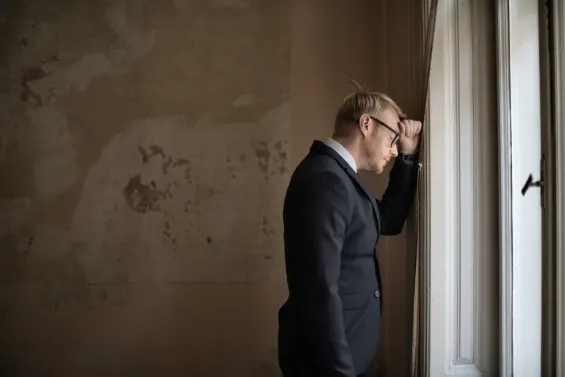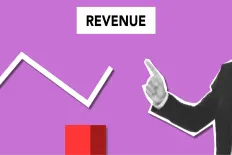This post will focus on the following topics.
- Not Setting A Financial Goal
- Failing To Identify A Reasonable Timetable
- Having Emotional Gap
- Going With The Herd
- Not Doing Your Research
- Key Takeaway
The rise of investing in a business-driven and market-centric economy has shaped the way people work towards financial stability. When you ask people what to do with the extra money sitting in their bank account, the immediate answer is to grow them through investing.
Although people would also suggest starting a business is a good option, it can be intimidating if you don’t know the how-to's and processes of entrepreneurship. For some, investing seems like an easier way to earn money without doing much leg work - saving while investing is as efficient.
From a macro lens, investing looks like a promising aspect to attain overall economic growth. When you invest money in businesses, you can contribute to a bigger capital. A bigger capital means better opportunities for streamlining of work and resources.
And so, being able to invest is also being able to contribute to a strong and productive economy.
However, there is a need to put emphasis on the competitive nature of investing. While thousands of people hit the jackpot with the right investments and became millionaires, a greater number of investors failed and ended up bankrupt.
An estimation made by Tradeciety reveals that 80% of investors quit after 2 years and after 5 years, only 7% remain in the trading industry.
These numbers prove that it is easier to lose than to win in investing. Every investor’s goal is to be part of the thriving 7%, but the work is harder than it seems.
Investing is not about you putting money on a company and then sitting down as you watch your money grow. Investing requires the necessary knowledge, skills, and attitude to become successful.
And so, if you’ve made several attempts to increase your invested money exponentially to no avail, you need to re-evaluate your decisions because you must be doing something wrong.
If you are a new investor or planning to make investments in the future, here are some of the most common investing mistakes you should avoid. Consequently, taking note of these will save you time, and obviously the money you’ve been wanting to grow:
Not Setting A Financial Goal

Not having a strategic plan in investing is just the same as setting yourself up for failure. When investing money, you have to set up your goals as clear as you can. Identify how much capital you are willing to invest (and lose) and how much you want to make.
The next and most important thing you should do is stick to that goal.
When you have a solid plan, the risk of losing money decreases.
Understanding the performance of your investments will help you align your goals to them accordingly. With this in mind, you won't have to deal with risky investments, and you can solely focus on gaining the amount you plan to earn.
Failing To Identify A Reasonable Timetable

Timing is an important part of investing. You have to understand that your goals should be set in a certain timeframe, so you can properly manage and allocate the remainder of your funds in the future.
For example, ask yourself what are you investing for - is it for a new car? For building a house? For your children’s college fund? Or for your retirement fund?
Identifying the rationale of your investments can determine whether you are investing for short-term or long-term.
Ideally, for experienced investors, holding their investments for as long as they can is optimum. This is why “HODL” or Hold On for Dear Life is one of the most used slangs in cryptocurrency.
Regardless of price drops, the idea of volatility is what fuels their desire to wait.
Setting aside the HODL mantra, a common mistake among investors is balling out too late or too soon. Give your investment time to grow, but at the same time, don’t let your losses grow bigger and bigger each day.
At the end of the day, it is you who fully understands your financial situation. What you have to be mindful of is making decisions and understanding the repercussions they can lead to in the future.
Having Emotional Gap

It is an underestimate to only invest the amount you are willing to lose. And although it is popular advice to give, it is not necessarily the easiest to follow.
Emotional gap in behavioral finance refers to the act of making decisions based on emotions. The success stories of investors giving capital with incredible returns oftentimes drive investors to become too excited or too hopeful for their investments.
And when emotions are heightened, the decisions are mostly made out of logic and reason.
It is important to assess the risks of your investments as well as your tolerance for handling losses. This is an effective way for you to know how much is enough to put out.
Overall, in understanding how to make an investment, make sure that the money you use is not the money you are going to use to pay for a debt, mortgage, or your child’s tuition.
If losing the money is going to hurt you and your financial status, you might want to trim it down.
Using the money you are willing to risk allows you to have less-pressured and relaxed decision-making practices as an investor.
Going With The Herd

It is always enticing to invest in something you have heard or seen from social media, the news, or your friends. And while it is true that demand is an important factor to a successful investment, going with what is on-trend is not necessarily beneficial in the long run.
Taking the frenzy over GameStop as an example, the craze on investing in the game has reached the mainstream media as 2021 started and when the investors rushed into putting their money on it, they were a little too late.
As a rule of thumb, when an investment opportunity has reached the news, then the stock must have reached its peak. You will have to face the consequences of either putting in a larger amount than you should or losing money after a while.
This shows the importance of always planning your investments. Planning in this context is not limited to your financial flexibility, but it also extends your due diligence to know where you’re putting your money.
Not Doing Your Research

As mentioned above, it is key to know where you’re putting your money on, but people often overlook the importance of researching the company they are giving capital to operate.
If you do not know what you are getting yourself into, then you will not be prepared for any situation that you will encounter as you invest. You should look into the company you’re investing in and see what their business plans are.
This will equip you with the awareness of how the company will run over the next few years.
A mistake a lot of investors make aside from putting money on what’s popular is buying stocks on just anything they think will be a solid utility in the future and would therefore increase in value. This is common for technology-based companies.
Although this is correct in essence, taking the industry into consideration is not enough. You have to look into the specific company you’re going to fuel and make sure that they can deliver effective long-term results.
Or else, you’ll end up losing your money on a company facing back-to-back lawsuits and/or bankruptcy.
Key Takeaway

Making investment as a way to secure a financially stable life is an ideal thing to do. People see the process of trading and investing as something that is two-directional - you give money to a company, and they’ll grow the money in return. It seems as easy as buying ice cream.
But no matter how promising and inspiring investing is as you see how it changes people’s lives, the aspect of hard work and putting effort to succeed should not be undermined. Investments make people “rich”, but they also make financial situations worse in many cases
And so, it is helpful to remind yourselves of the things that oftentimes lead people to failure. By understanding the simple acts of planning properly, timing right, being emotionally resilient, not chasing the trends, and doing your due diligence, you can make smarter decisions just like seasoned traders.
At the end of the day, if you treat your resources more seriously, you will be more mindful and strategic of how you optimize and utilize them to shape your future. Whether it is about investing, careful choices will always take you far.
Read Next
The following articles are related to 5 investing mistakes you should avoid at all costs.









My biggest gripe with small and retail investors is that they jump in an asset which has already given good returns and is now being talked about. Jumping after a good return is one sure way to lose money.